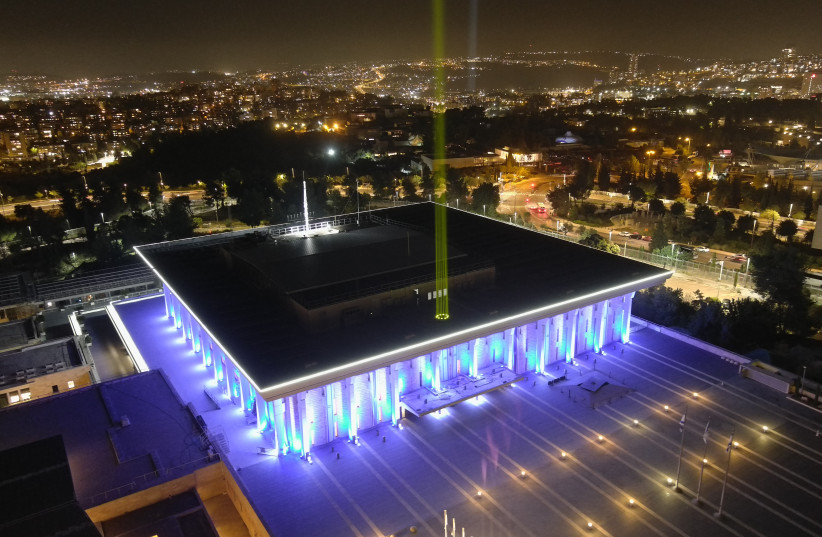
October 7 marked both Israel’s darkest hour and its potential turning point. The bloodiest day in Jewish history since the Holocaust broke down long-standing perceptions. It has invoked a pivotal, historic moment – the opportunity for irrevocable change.
This moment calls our generation to action. We’re undergoing a collective trauma that will shape our identity. Often misconstrued as a “TikTok” generation, we’re resilient, realistic, passionate, and patriotic, connected to our homeland and roots.
Our generation is committed to reclaiming our Zionism by acknowledging the challenge ahead: win this war; rebuild our country; and pave the way for the next 75 years. As in 1948, the most pivotal year for our people, we draw inspiration from our founding fathers and will make this moment a turning point in our trajectory.
This upcoming change will manifest across three main pillars.
A political renaissance
At a historical low point, Israel finds itself with leadership struggling to steer the nation back onto its intended course. Our current leaders, from all political parties, have failed us deeply. Our leadership lacks managerial competence or a clear vision. They typically prioritize coalition maintenance and sustaining divisiveness, and insist on preserving the status quo.

Our new politicians will not be the old ones chasing tweets and headlines, but empathetic leaders who will be rewarded for pure professionalism and performance, exactly as their business sector peers. Our generation requires a new type of leadership that will position us all for tremendous success, restore our sense of capability and pride, and, most importantly, deliver tangible results.
The old politics is gone, never to be seen again. Our new leaders will articulate a fresh, inspiring vision, construct actionable plans to achieve it, and be evaluated based on their execution.
They will bring extensive field and domain experience, driven only by the purpose to do good for all Israelis – not for their political base of personal gain. We will assess them not by their identity but by their values, integrity, competence, and excellence.
Grounded in a biblical, Talmudic, and Zionist ethos, they will encourage robust debate and respect for diverse opinions, yet consistently challenge the status quo and assume shared responsibility for their outcomes.
Bold resolutions for key issues
A business enterprise will completely break without adapting to changes and making bold decisions. And what about a nation? Indecision has become widespread in Israeli politics, especially on sensitive yet critically important issues. This is due to systemic faults and short-sighted leadership. Those in power are served by the status quo or by stalling progress. It is crucial for Israel to break this pattern.
Post-war Israel is ready to reconnect with its Zionist roots, when leaders were unafraid to challenge norms and make bold decisions. Incoming leadership will embrace change, making potentially unpopular but necessary decisions in critical areas during a short period.
These include a new national defense strategy, education reform, ultra-Orthodox participation in the IDF, and shaping a new constitution that determines the Jewish character of the state and its government structure, to name but a few.
The same bold decision-making and transformative leadership that characterized the nation’s founding will guide Israel’s path forward in the post-war era.
Rebuilding our public sector
After October 7, the public felt disappointed by our government’s slow response to rapidly changing challenges. One silver lining has been the effectiveness of local government entities and civilian grassroots initiatives. They showed exceptional responsiveness, addressing diverse needs like housing, mental support, and even swiftly developing apps for emergency troops.
This phenomenon represents a future in which the government collaborates closely with its municipalities and civilians to achieve shared goals, not just in times of war.
The post-war government structure and purpose will undergo a revolutionary shift. A streamlined and lean government structure will address core needs, reducing offices from more than 34 to 10. Each office will have a clear and quantifiable work plan.
The government will shift focus to goal-setting and standardization, fostering innovation while minimizing direct operational involvement. Significant powers and budgets will be decentralized, empowering local government and civilian initiatives.
The public sector workforce will mirror the tech industry, emphasizing innovation and agility over seniority or political loyalty. It will drive continuous workforce changes, with excellence and performance as the sole criteria.
This structural change aims to enhance governance, optimize resource allocation, and improve adaptability, positioning Israel for significant success.
Our generation, our responsibility
October 7 has presented a pivotal moment for Israel. Our generation understands the responsibility it bears at this critical juncture: to lead, win the war, challenge the status quo, collaboratively rebuild, and ensure that excellence and prosperity define our next 75 years.
This is our responsibility for the next generations of Israel. ■
The writer is a tech and social founder, serves as senior vice president at Palo Alto Networks, and is chairman of the board of the nonprofit organization Place-IL.
